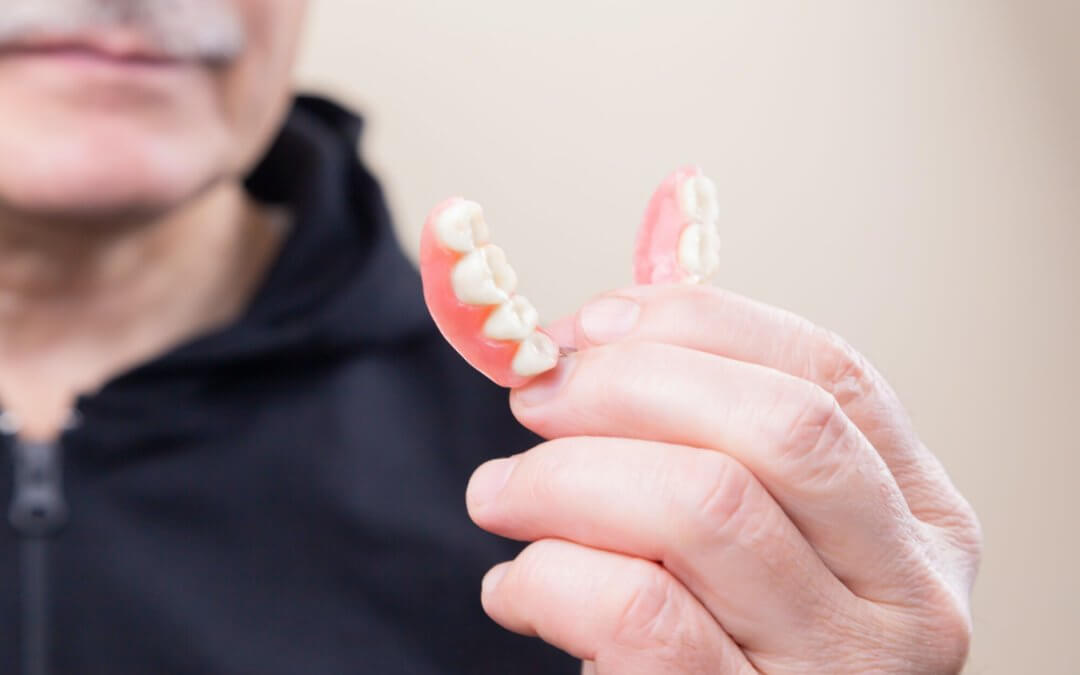Did you know that more than 36 million Americans don’t have any teeth?
People lose their teeth for a number of reasons. But for many, gum disease is to blame.
Thankfully there is a solution to restore your smile! Dentures are artificial teeth and gums that are formed to comfortably fit inside your mouth. Versailles Family Dentistry offers professional denture fittings, repairs, and relining.
But did you know poor-fitting dentures can negatively impact your digestion? The same goes for eating without teeth.
If you’re struggling to eat, you’re not alone. Versailles family dentist understands your pain.
Read on to find out how to enjoy eating with dentures that fit right.
What Makes Eating With Dentures Difficult?
Once you are fully adjusted to your dentures, eating should be easy. But people with new dentures may find it difficult to eat. This adjustment period can be stressful and uncomfortable.
This is because your gums may need to adjust to chewing and biting again. They might also be sore from any dental work you have recently had.
Dentures can also slip out of place when you bite in certain foods, especially harder foods. The spaces around your dentures are also prime spots for food to get stuck. This can be an uncomfortable feeling and don’t forget to mention, annoying.
What Are the Effects of Poorly Fitting Dentures?
If your dentures don’t fit correctly, it can cause a number of issues that often lead to irritation and inflammation. They can also cause painful sores that place you at risk of severe discomfort.
Let’s take a look at 3 common effects of poorly fitting dentures.
1. Gum and Jaw Problems
Dentures that don’t fit correctly can rub against the gingival tissues. This can lead to irritation and inflammation.
If you chew without your dentures in, your gums and jaws work 10 times harder to consume the food. Over time, your jawbone can become impaired, sore, misaligned, and fatigued.
This is one of the main reasons people with dentures are hesitant about eating.
2. Gastrointestinal Problems
When food is not well-chewed and the food pieces are too large to be broken down, digestion is compromised.
Not only do you miss out on the nutrients extracted from the food, but undigested food can wreak havoc on your colon. This can lead to excessive flatulence, bacterial growth, bloating, nausea, and other digestion issues.
3. Bone Loss
By consistently eating without teeth or dentures, you might experience some form of bone loss. Relying on your gums to bite, grind and chew food can start breaking the bone in your jaw down. This may become a permanent bone loss.
In cases like this, you may need to undergo restorative dentistry.
How to Get Used to Eating With Dentures
Getting used to eating with dentures takes time and patience. It may take a day, or a week or more to feel completely natural again. But it will happen.
With these simples steps, it won’t be long before you will be enjoying your favorite foods again.
1. Take It Slow
For the first few days, your dentist may recommend you stick to a liquid diet. This includes consuming foods like smoothies, oatmeal, soup, and apple sauce.
If you start with foods that require chewing right off the bat, it might feel very uncomfortable. Plus, you may be harming your gums more than you think.
A liquid diet might not be fun, but you’ll appreciate chewing food even more so because of it.
2. Take Care With Each Bite
Eating with dentures is always going to cause you some difficulty early on. When it’s time to move off the liquids, it’s important to chew slowly and take small bites only.
When you take a bite, use your canines instead of your front teeth. When you bite down with your front teeth only, your dentures are likely to move. This will give you discomfit and may discourage you from eating.
3. Practice Makes Perfect
With anything new, practice makes perfect. The same goes for you and your new dentures. It might take a couple of days, or it may take longer to get used to eating again.
Either way, it’s perfectly normal.
As you make progress, you can continue to challenge yourself with firmer foods. You should also practice chewing with both sides of your mouth. Relying on one side can lead to strain and sensitivity.
4. Avoid Hard and Sticky Foods
Sticky foods like candies, peanut butter, gum, beef jerky, and licorice are no-go foods. Sticky foods can get stuck and trapped under your dentures and irritate your gums and your mouth. This includes small, hard foods like seeds, nuts, corn, and raw carrots.
Hard foods take more pressure to bite into, and this pressure can cause your dentures to dislodge or feel loose. That’s because the pressure you use to take a bite isn’t evenly distributed.
Eating With Dentures: Making It Pleasurable Again!
Eating should be a pleasurable experience. Don’t let your dentures get you down!
With so many Americans seeking out dental care now more than ever, it’s no wonder “dentist near me” is one of the top-rated searches on Google!
If you’re new to dentures, it’s important to take care of them. With proper cleaning and regular dental visits, your dentures should fit just right.
And if you don’t have dentures, but think you might need to, it’s time to visit Versailles Family Dentistry. Our passionate team is dedicated to ensuring your general and cosmetic dentistry needs are taken care of.
A Versailles dentist is a dentist who cares. To enquire or to book an appointment, contact us today.

